Eco-friendly travel in Siem Reap and Angkor Wat
June 12, 2023
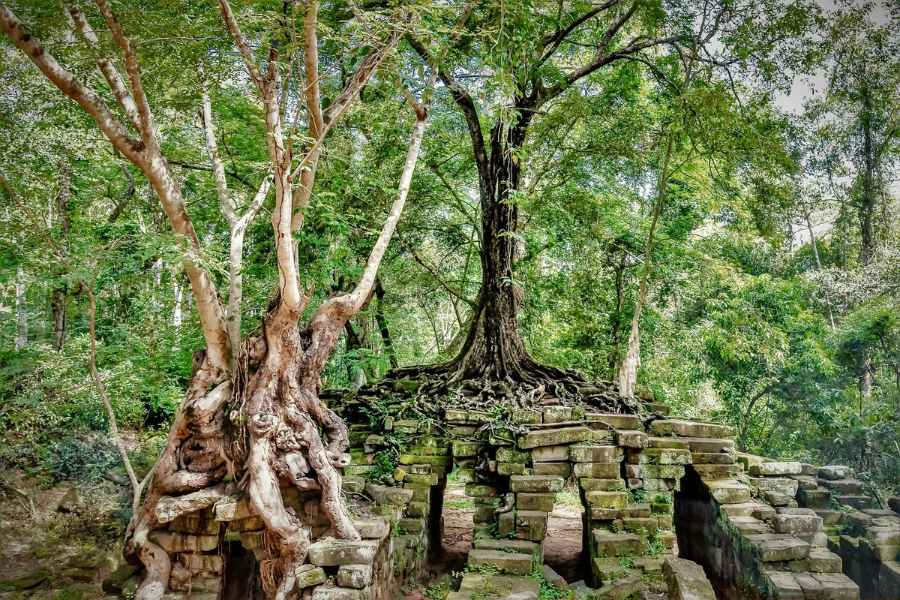
Table of Contents
Eco-friendly travel in Siem Reap and Angkor Wat
Introduction to sustainable tourism in Siem Reap and Angkor Wat
Sustainable tourism in Siem Reap and Angkor Wat is on the rise. Visitors seeking eco-friendly alternatives that respect local culture and minimize waste are aware of the harmful effects of traditional mass tourism.
Siem Reap offers multiple responsible travel options, such as Angkor Wat eco-tours, biking and walking tours. These activities showcase the beauty of the temples while preserving their authenticity. By choosing sustainable tourism, visitors can support local communities and contribute to a more sustainable future.
The city has banned plastic bags and encourages recycling to reduce waste and mitigate pollution. Businesses use natural materials and support fair trade practices, plus engage in social initiatives.
Sustainable tourism in Siem Reap is rooted in Khmer traditions of living with nature. The ancient temples of Angkor were built with respect for the environment. They used local resources and blended into the landscape to form a symbiotic relationship between humans and nature. Rediscovering these values through modern sustainable tourism practices can help visitors connect with Cambodia’s cultural heritage and conserve it for future generations.
Who needs a tuk-tuk when you can ride a bicycle and reduce your carbon footprint while exploring Siem Reap’s stunning landscapes?
Eco-friendly transportation options for visitors
To explore eco-friendly transportation options for your visit to Siem Reap and Angkor Wat, we have come up with some solutions that can help reduce your environmental impact on the area. The following sub-sections briefly introduce the available options: bicycle rentals in Siem Reap, tuk-tuk tours powered by renewable energy, and electric vehicle tours.
Bicycle rentals in Siem Reap
A bicycle rental in Siem Reap is an awesome way to explore the city. It’s just $1-2 per day and there are lots of shops near tourist spots, like Angkor Wat. You can rent bikes for a few hours or multiple days. There’s mountain bikes, cruisers and more. The shops can even provide maps and local insights. Plus, you’re helping local businesses!
Did you know? Many of the major sights in Siem Reap are bike-accessible. Riding is an eco-friendly option plus you get to enjoy the scenery on the way.
Fun fact: During the Khmer Rouge, bicycles were the only allowed transport. This has shaped biking culture in Cambodia today! So go ahead and rent a bicycle – tuk-tuk tours can’t beat the carbon footprint of Sasquatch in a mud puddle!
Tuk-tuk tours powered by renewable energy
Explore your destination in a unique and eco-friendly way – take a tuk-tuk tour! These three-wheeled vehicles are becoming very popular due to their energy efficiency and low emissions. You’ll get a close look at landmarks and attractions, and learn interesting facts about the history and culture. Tuk-tuks are small and nimble, so they can navigate narrow streets and alleyways that larger vehicles can’t. Plus, some tuk-tuks are powered by renewable energy sources like solar panels or electric batteries. This means you’re reducing your carbon footprint and supporting green technology.
To make the most of this experience, book with a reliable tour operator who values safety, sustainability, and responsible tourism. So don’t be a backseat driver – hop on an electric vehicle tour and let someone else do the eco-friendly driving!
Electric vehicle tours
Electric vehicle tours are a fun way to explore! They are often custom-built or retrofitted with modern tech like regenerative braking and solar panels. Plus, some tour companies offer organic and locally sourced snacks. And, since electric vehicles emit no greenhouse gases, they are the ideal choice for eco-friendly travelers.
Visitors can choose from short tours, a few hours long, to full-day excursions. People can learn about local histories, cultures, and geographies while enjoying the peaceful atmosphere, free of gasoline engine sounds and exhaust fumes.
Did you know? The world’s largest electric bus fleet is in Shenzhen, China! As of August 2019, all 16,000 buses were electric-powered.
When it comes to sleeping, the responsible choice is to go with sustainable materials – unless you prefer a pile of garbage!
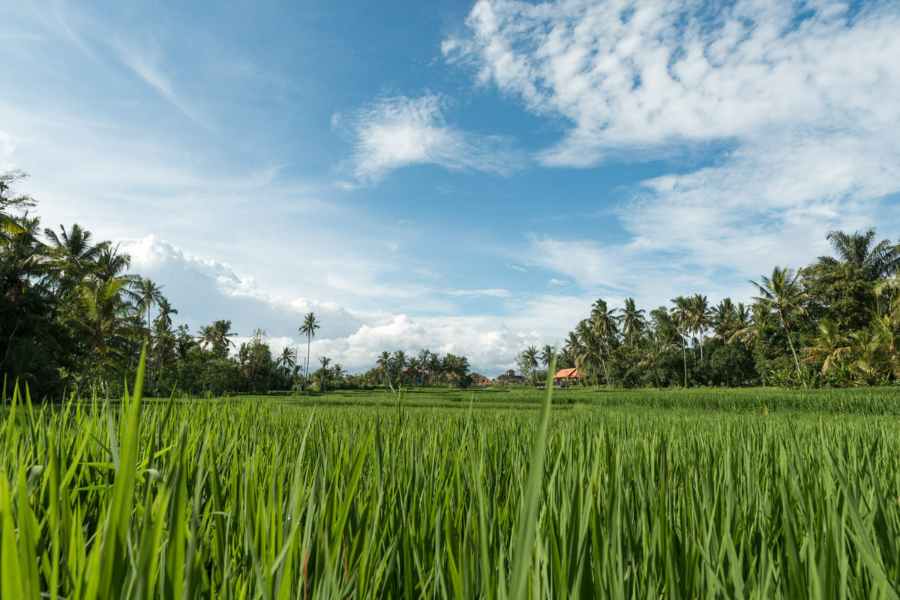
Responsible accommodation options
To find the most responsible accommodation options that align with sustainable tourism in Siem Reap and Angkor Wat, you need to know which establishments prioritize eco-friendliness. Choosing eco-lodges in Siem Reap or hotels with sustainable practices can make a positive impact on the environment while still ensuring your comfort during your stay. Let’s explore these two sub-sections to see which one suits your sustainable travel goals best.
Eco-lodges in Siem Reap
Siem Reap, a city in Cambodia, is renowned for its awe-inspiring temples, picturesque views, and wildlife conservation. Ecotourists seeking responsible lodgings should consider eco-lodges. These lodges blend in with the natural landscape and offer guests luxurious amenities with an environmentally conscious twist.
Solar panels, refillable water bottles, biodegradable toiletries, and sustainable waste management are just some of the sustainable practices used by Siem Reap’s eco-lodges. Furthermore, they provide activities like hiking, bird-watching, and bike rentals to motivate guests to connect with the environment.
Don’t miss out on creating incredible memories while taking part in eco-friendly practices. Reserve a stay at one of Siem Reap’s eco-lodges today! Brag about your eco-friendly choices on social media while you’re at it!
Hotels with sustainable practices
Travelers becoming more eco-friendly? Hotels with sustainable practices are a must! Solar panels, water-saving technology, composting programs, and eliminating single-use plastics – all to reduce carbon footprints. Locally sourced food, rechargeable batteries, organic toiletries and biodegradable materials – amenities you won’t find just anywhere. Plus, nature walks and educational tours all for an eco-friendly experience. Pro Tip: Check for LEED certifications to be sure of your sustainable stay! Exploring and helping the environment? Now you can have the best of both worlds!
Explore Angkor with Bayon Temple and the world-famous Ta Prohm (Tomb Raider) Temple
Sustainable activities in the Angkor Archaeological Park
To promote sustainable tourism in Siem Reap and Angkor Wat, this section focuses on sustainable activities in the Angkor Archaeological Park with guided tours emphasizing conservation efforts, responsible temple visits, and nature walks and bird watching in the parks surrounding Angkor Wat. These sub-sections will provide eco-conscious travelers with practical solutions to reduce their environmental impact and contribute to the preservation of Siem Reap’s natural and cultural heritage.
Guided tours emphasizing conservation efforts
Eco-tourism is essential for protecting the Angkor Archaeological Park. Guided Siem Reap tours providing conservation info are now trendy and let visitors see the park in a more eco-friendly way. These tours focus on teaching tourists the importance of conservation and how they can help keep the park alive for future generations.
Guides will take visitors around to temples and old structures that have withstood the test of time. They’ll explain the history of Angkor Wat and show the differences between architectural styles from different ages. Tourists will also learn about traditional methods locals use to keep these buildings from decaying.
Go on a tour to explore the park, know its history, and help preserve it for the future. Climate change is a huge concern, so preserving heritage sites like Angkor is vital not just for us, but for generations to come. Join a sustainable venture – visit with eco-friendly practices and don’t leave behind a carbon footprint.
Discover an amazing journey through time while contributing to sustainable tourism at Angkor Archaeological Park. Don’t miss out on this opportunity to help the planet!
Responsible temple visits
For a truly unique adventure, take part in responsible temple visits at Angkor Archaeological Park. Respect the cultural heritage and environment – adhere to dress codes and don’t touch or climb the temples. Hire knowledgeable local guides who can also act as interpreters. Instead of plastic water bottles, use refillable ones from water stations around the park. Avoid buying souvenirs from wildlife products, as this encourages illegal trading and threatens endangered species.
Stay in eco-friendly lodgings around Siem Reap for modern amenities with sustainable energy sources and environmentally friendly practices such as recycling waste and conserving water.
Responsible temple visits not only protect our cultural heritage but also positively impact the lives of locals, through increased tourism. Preserve our planet’s resources with responsible temple visits and other conservation efforts. Enjoy the tranquility of nature and bird watching at Angkor Wat, with picture-perfect selfies!
Nature walks and bird watching in the parks surrounding Angkor Wat
Treat yourself to a nature experience like no other! Bird watching in the magnificent parks of Angkor Wat is the perfect way to feel relaxed and re-energized. Here are three things to keep in mind:
- Admire the many colorful birds flitting about and singing.
- Take in the gorgeous views while sipping on some cool coconut water.
- Go for a peaceful stroll, inhaling the fresh air and enjoying the tranquility.
Be on the lookout for special features as you journey through these lush green lands. You could even encounter some wild animals in their natural habitat! And who knows, maybe you can spot some rare plants or flowers that only grow in the area.
Don’t miss out on the opportunity to explore these wonderful parks of Angkor Wat! There are so many amazing things to discover here. So take some time off and immerse yourself in the beauty of nature! Help the environment and the local communities at the same time – what a great way to multitask!
| Sustainable Activities | Key Takeaways |
|---|---|
| Guided Tours Emphasizing Conservation Efforts | 1. Eco-tourism is crucial for protecting Angkor Archaeological Park.
2. Learn about conservation and history through guided tours. 3. Join in sustainable tourism and leave minimal carbon footprints. 4. Visitors can help preserve the park for future generations. |
| Responsible Temple Visits | 1. Respect the cultural heritage and environment with responsible visits.
2. Adhere to dress codes and don’t touch or climb the temples. 3. Use refillable water bottles and avoid souvenirs made from wildlife products. 4. Stay in eco-friendly lodgings that practice sustainability. 5. These actions can positively impact the local communities. |
| Nature Walks and Bird Watching | 1. Relax and recharge with bird watching in the parks surrounding Angkor Wat.
2. Enjoy peaceful walks, fresh air, and tranquility. 3. Look out for unique wildlife and plant species. 4. Your engagement aids in preserving the environment and supporting local communities. |

Reducing waste and supporting local communities
To reduce your environmental impact while traveling in Siem Reap and Angkor Wat, this section on reducing waste and supporting local communities with village tours showcasing local handicrafts, responsible souvenir shopping, and reducing plastic waste while traveling, will provide you with tangible solutions. By implementing these eco-friendly travel practices, you can not only minimize your environmental footprint but also support the local communities.
Village tours showcasing local handicrafts and traditional practices
Village tours are an awesome way to discover local customs and traditions while aiding the local community. They’re a great chance to learn about different handicrafts and regional delicacies unique to each place.
- Visitors get to see skills and crafts passed from one generation to the next.
- These tours offer a chance to communicate with locals, exchanging culture and understanding different customs.
- The tours give a sustainable income to the people by promoting their art and commerce.
- Most of these handicrafts are eco-friendly, made from local materials and ancient techniques.
- The journey can be educational as it lets visitors feel rural life in an unusual setting.
Plus, village tours aren’t just about viewing unique artifacts; they also display particular cultural practices such as cooking or religious rituals. Such practices offer understanding into history and lifestyle elements that can’t be found anywhere else.
I once saw how families near the shorelines made intricate lacework from seaweed. They processed the seaweed into gel-like texture then wove them into different designs. It was inspiring to see an ordinary resource turned into something lovely that adds beauty at home!
Bringing home a miniature replica of the Eiffel Tower may sound like a great idea, until you know it’s produced in China and causes environmental pollution.
Responsible souvenir shopping
Souvenir shopping can be tough for the responsible traveler. But you can still support local folks and avoid waste with wise choices. Here’s how:
- Pick items made from sustainable materials.
- Choose things unique to the area.
- Avoid mass-produced goods from other countries.
- Look for locally made items or crafts.
- Consider buying food to share.
- Refrain from single-use plastic souvenirs and extra packaging.
Also, be mindful of cultural appropriation. Respect local customs. Ask locals for advice. Learn about the item’s symbolism.
Pro Tip: Check if the shop supports social causes or community development projects. That way, you can help out while enjoying a meaningful souvenir.
Pack light – reducing plastic waste doesn’t have to add weight when you travel.
Reducing plastic waste while traveling
As we start fresh adventures, it’s essential to reduce plastic waste while travelling. Here are some tips to help travellers aid local communities and lessen waste:
- Bring a reusable water bottle and top it up at filling stations or eateries.
- Use soap bars or shampoo instead of liquid containers.
- Choose sustainable transportation like biking or walking.
- Don’t buy single-use plastics like straws or utensils – bring your own reusable ones.
- Look into hotels and tours that have sustainability initiatives in place.
Besides these tips, there are other original ways to back local communities when travelling. Visit local markets, eat at locally owned restaurants, and take part in community-led tours, to support the economy of your destination.
Pro Tip: Before you go, look into the environmental challenges faced by your destination and make a plan to stop any negative impact you could make during your visit.
Leave nothing but footprints, kill nothing but time, and back everything local – responsible tourism in Siem Reap and Angkor Wat.
| Sustainable Practices | Key Takeaways |
|---|---|
| Village Tours Showcasing Local Handicrafts and Traditional Practices | 1. Discover and support local customs, traditions, and handicrafts.
2. Enhance cultural exchange and understanding. 3. Contribute to sustainable income for local communities. 4. Enjoy the educational journey through rural life and unique practices. |
| Responsible Souvenir Shopping | 1. Choose souvenirs made from sustainable materials and unique to the area.
2. Avoid mass-produced goods and single-use plastic souvenirs. 3. Support local artisans and community development projects. 4. Be mindful of cultural appropriation and learn about the symbolism of items. |
| Reducing Plastic Waste While Traveling | 1. Bring a reusable water bottle and avoid single-use plastics.
2. Opt for soap bars or shampoo instead of those in plastic containers. 3. Choose sustainable modes of transportation like biking or walking. 4. Look for accommodation and tour operators with sustainability initiatives. 5. Support local markets, restaurants, and community-led tours. |
Emphasizing the importance of responsible tourism in Siem Reap and Angkor Wat.
Responsible tourism is of utmost importance in Siem Reap and Angkor Wat. As visitors flock to these amazing destinations, the impact of their actions on the environment must not be forgotten. Eco-friendly tours are a great way to reduce travelers’ carbon footprint and promote sustainable tourism.
There are various ways to contribute towards responsible travel in Siem Reap and Angkor Wat, such as:
- Staying in eco-friendly hotels
- Participating in community-based tourism activities
- Consuming locally sourced food and understanding the culture and customs of the locals
This way, not only can the environment be conserved, but local businesses and activities that benefit people from low-income backgrounds can also be supported.
Moreover, tourists can make efforts to lower waste generation by bringing reusable bags and water bottles. Single-use plastic items like straws, cutlery or cups must be avoided. Small considerations can make a huge difference in helping care for the environment.
Let me share an experience with you – On my visit to Siem Reap last year, I joined an eco-tour organized by a local agency. At Angkor Wat, our guide educated us on groundwater depletion caused by excessive use of water within temple premises. We were requested not to use tap water or dispose of any waste within the temple’s limits. Following his guidance helped us leave behind zero-waste at one of Cambodia’s most popular tourist sites.
Frequently Asked Questions
What is sustainable tourism in Siem Reap?
Sustainable tourism in Siem Reap is a travel approach that aims to protect the natural and cultural environment of the region, while benefiting the local community. It involves responsible and eco-friendly travel practices, as well as supporting small businesses and conservation efforts.
What are some eco-tours available in Angkor Wat?
Angkor Wat offers various eco-tours that allow visitors to explore the temples and surrounding nature while minimizing their impact on the environment. These tours typically involve cycling or hiking, with knowledgeable guides who can provide insights into the culture and history of the region.
How can I be a responsible traveler in Siem Reap?
Being a responsible traveler in Siem Reap involves making conscious choices that minimize harm to the environment and support the local community. This includes staying in eco-friendly accommodations, reducing resource consumption, and supporting small businesses and sustainable tourism initiatives.
Are there any green accommodations in Siem Reap?
Yes, there are many green and eco-friendly accommodations available in Siem Reap, ranging from budget hostels to luxury boutique hotels. These accommodations typically use sustainable practices such as recycling and energy-efficient technology, and provide opportunities for guests to learn about local conservation efforts.
Can I support conservation efforts in Angkor Wat?
Yes, there are many conservation efforts underway in Angkor Wat that visitors can support. These include supporting local organizations that work towards preserving the environment and heritage sites, as well as minimizing one’s impact on the environment through responsible travel practices.
How can I reduce my environmental impact in Siem Reap?
There are several ways to reduce your environmental impact when traveling in Siem Reap. These include using reusable water bottles and bags, minimizing water usage, supporting local conservation efforts, and choosing eco-friendly modes of transportation such as cycling or walking.
Recent Post
Get 30% Discount Now
Categories
Guided Tours
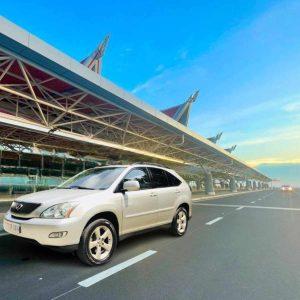
Private Siem Reap Airport SAI Transfers – Siem Reap Airport Pick-up or Drop-off, Just for You!
From: 30$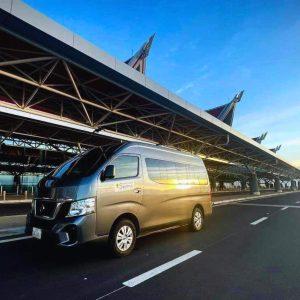
Shared SAI Siem Reap Airport Transfer – We depart every 1 hour!
From: 9$
Private Full-Day Siem Reap to Koh Ker & Beng Mealea Temple Tour
From: 75$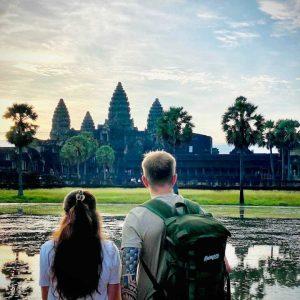
2-Day Angkor Wat Sunrise & Banteay Srei Grand Tour – Small Group Tours
From: 30$
2-Day Angkor Wat Temple Sunset and Floating Village Tour
From: 40$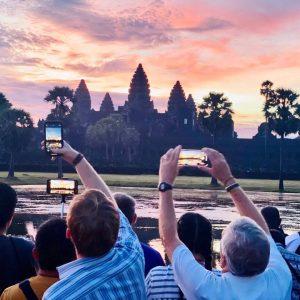
3-Day Angkor Wat Sunrise, Banteay Srei and Floating Villages Tour – Small Group Tours
From: 50$